Wellness
What are the Causes and Benefits of Conflict?
Your day might have started fairly ordinary. Only somewhere along the way, things blew up. Now you’re in the middle of a massive conflict with no clear idea of how you got there.

It’s normal to fall into conflict – we’re only human after all. Some conflict is even good for us! But did you know that by understanding how these blow-ups come about, you can learn how to avoid many of these conflicts in the first place?
Conflict comes about because we’ve hit a point of disagreement with another person. While a difference of opinion doesn’t have to turn into conflict, every conflict has at its heart a difference of opinion. These differences manifest in these areas:
- A difference in values
- A difference in motivations
- A difference in what you perceive is true or necessary\
- A difference in wants
- A difference in the understanding of various ideas or even ideals.
How do these differences then turn into conflicts?

- The difference has somehow become perceived as a threat. Whenever you feel threatened, there’s going to be trouble. Threats bring out that whole urge to fight to protect what’s important to you. Hence, your disagreement escalates into the realm of conflict.
- You’ve let that conflict fester. So, what might have felt like a minor threat at the beginning has become something much bigger in nature because of two factors. First, you neglected the conflict by not dealing with it right away. Second, the passage of time has given the conflict room to grow. So, now it’s blown up into something bigger than it ever was in the first place. How? Keep reading, and you’ll see.

Source: Pixabay - By now your perception is off-kilter. It might be that what you perceive to be a threat – was never a threat in the first place. How does this happen? Chances are you lost your objectivity in the situation. Especially if you feel threatened. Then add to it #4.
- Your emotions got involved. Conflicts tend to attract strong emotions. But the stronger the emotion, the more likely you are to blow things out of proportion. Emotional reactions also make it a lot harder to deal with a conflict in the first place, so chances are if you get emotional, you’ve already let things get out of control.
Are There Benefits of Conflict?
When you experience a violent storm, it’s easy to rail against the weather. The wind and the rain can seem terrifying, especially when coupled with the crash of thunder and the bright crackle of lightning splitting the sky. But ask any farmer, and they’ll tell you that even storms have their benefits. The rain is necessary for their crops. And believe it or not, when lightning strikes the ground, it puts nitrogen into the soil that is essential for things to grow.
Likewise, conflicts have certain benefits that we don’t always see. Keep reading to find several of them you might not have considered before now.

- Conflicts make us aware of new ways to do things. The very fact that there’s a conflict tells you that someone else has a different point of view from your own. By exploring those conflicts, you are likewise invited to explore the idea from a new angle and see a new solution that wouldn’t have occurred before.
- Conflicts enable us to verbalize what we want. Think of conflict as a way of being able to genuinely express yourself that doesn’t come up easily at other times. It’s through conflict that we decide what’s important to us, and how to put those feelings into words.
- Conflict drives flexibility. When we conflict, we’re hoping for others to see our point of view. But also in dealing with conflict, we’re forced to see the point of view of those around us. That is where we learn how to become flexible, to acknowledge that we’re not always right. The conflict then becomes the teacher of two traits that you can’t live without—that of being open-minded, and of understanding humility.

Source: Pixabay - Conflict forces us to listen. The only way to resolve conflict is to listen openly to the other person. Through listening, we acquire wisdom and learn to make better decisions.
- Conflict drives solutions. When you deal with conflict, you are likewise dealing with a problem that needs a solution. Resolving that conflict means finding those solutions, usually in new and innovative ways. Conflict, thus, forces us to solve our problems in creative ways.
While you might shy away from the idea of conflict, it’s good to remember these benefits. Without conflict, we stagnate. So while the storm outside might rage, remember that all tempests do come to an end. The sun will come out again, and in that light, you’ll be able to see how much you’ve grown and benefitted by that conflict.
You need to maintain your objectivity, keep your emotions in check, and realize that every conflict is an opportunity to grow. Conflicts are normal in life. But it’s the resolution of conflicts that draws us closer together and builds both trust and intimacy.
You may like
Featured
Party’s Over: Unraveling the Mystery of Hangxiety

“Hangxiety” is a term used to describe the feelings of anxiety, unease, or nervousness that can occur during or after a period of heavy alcohol consumption, particularly during a hangover. While it’s not a formal medical term, it does reflect a real phenomenon experienced by many individuals.
The science behind hangxiety involves several factors:
- Alcohol’s Effects on Neurotransmitters: Alcohol affects the levels of neurotransmitters in the brain, including serotonin and gamma-aminobutyric acid (GABA). Serotonin is a neurotransmitter associated with mood regulation, and alcohol can temporarily increase serotonin levels, leading to feelings of relaxation and euphoria. However, as alcohol levels decline, serotonin levels may drop, contributing to feelings of anxiety and dysphoria.
- Alcohol Withdrawal: Hangxiety can also be a result of alcohol withdrawal symptoms experienced during a hangover. As the body processes alcohol and its effects wear off, individuals may experience symptoms such as sweating, trembling, increased heart rate, and feelings of anxiety.

- Disrupted Sleep: Alcohol consumption can disrupt sleep patterns, leading to poor-quality sleep or difficulty falling asleep. Sleep disturbances can contribute to feelings of anxiety and irritability the following day.
- Dehydration and Electrolyte Imbalance: Alcohol is a diuretic, meaning it increases urine production and can lead to dehydration. Dehydration, along with the loss of electrolytes such as potassium and magnesium, can exacerbate feelings of fatigue, weakness, and anxiety.
- Impact on the Amygdala: The amygdala is a region of the brain involved in processing emotions, including fear and anxiety. Chronic alcohol consumption can affect the function of the amygdala, potentially leading to heightened anxiety responses.
- Psychosocial Factors: Hangxiety may also be influenced by psychosocial factors such as individual personality traits, coping mechanisms, social environments, and the presence of underlying mental health conditions.

It’s important to note that while alcohol may temporarily alleviate feelings of anxiety in the short term, excessive or prolonged alcohol consumption can exacerbate anxiety and contribute to the development of anxiety disorders over time. If hangxiety or alcohol-related anxiety becomes a frequent or concerning issue, seeking support from a healthcare professional or mental health provider is advisable. Additionally, practicing moderation in alcohol consumption and prioritizing self-care strategies such as adequate sleep, hydration, and stress management can help mitigate hangxiety and promote overall well-being.
Featured
Your Fork: Friend or Foe to Your Feelings
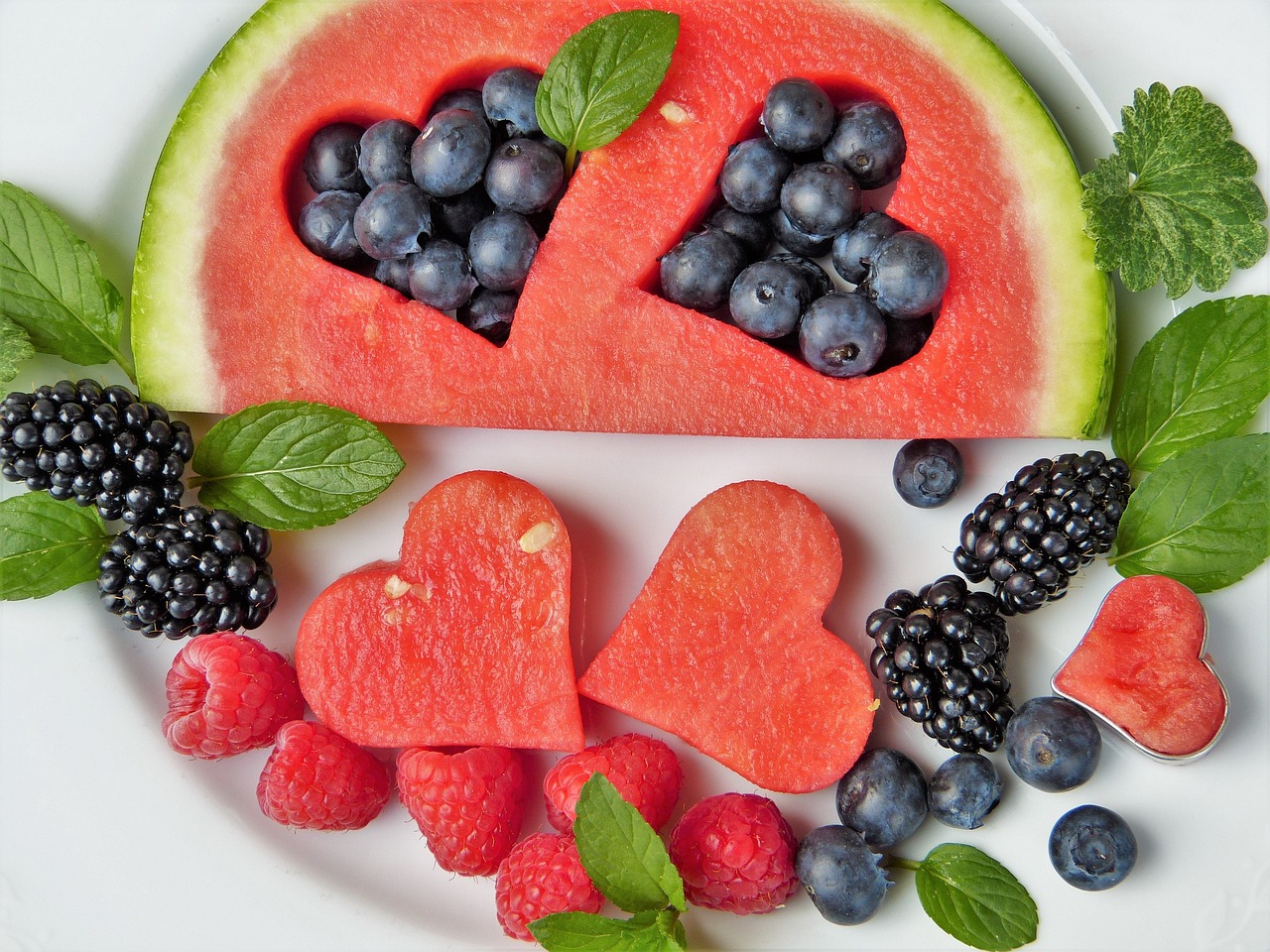

Ever experienced a sudden shift in mood after indulging in your favorite comfort food? The connection between what we eat and how we feel is a complex yet fascinating one. In this article, we delve into the intriguing world of how certain foods can significantly impact our emotional well-being.
Get ready to uncover the science behind why that bowl of leafy greens or decadent square of dark chocolate might just hold the key to a brighter, more balanced state of mind. From exploring the gut-brain connection to discovering the power of mood-boosting superfoods, embark on a journey that promises insights, strategies, and a newfound appreciation for the profound influence our diets have on our overall happiness.
The Gut-Brain Connection: How Your Digestive System Impacts Your Mood
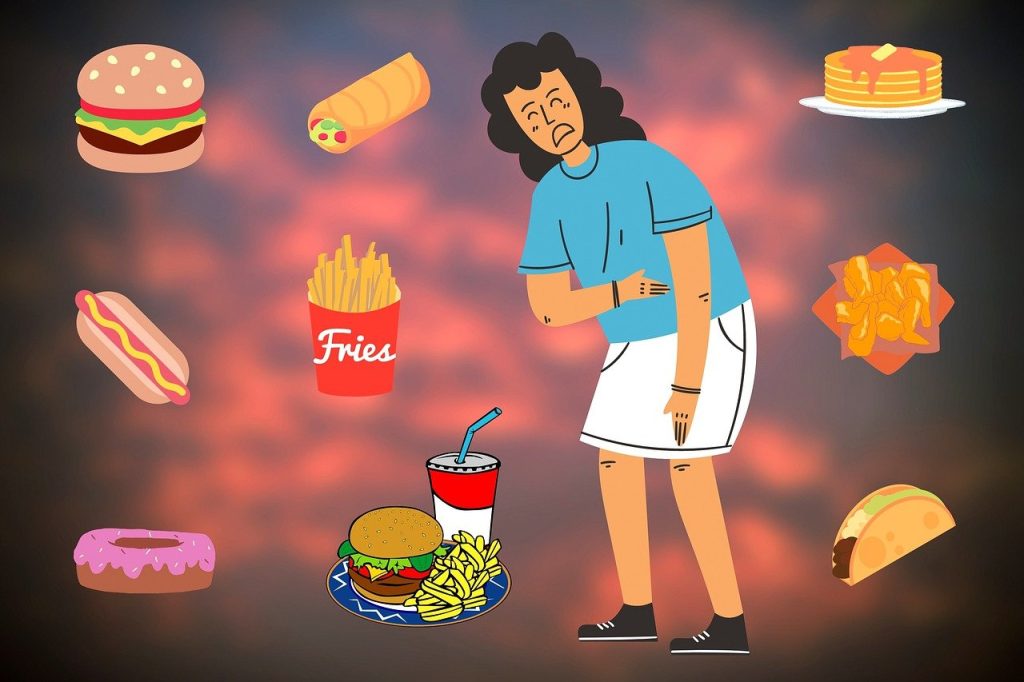
Our digestive system is not just responsible for processing food; it also plays a crucial role in shaping our mood and emotional well-being. The gut-brain connection, known as the enteric nervous system, communicates bidirectionally with the central nervous system, influencing our thoughts and feelings. Research suggests that a healthy gut contributes to better mental health by producing neurotransmitters like serotonin and regulating inflammation.
Furthermore, disruptions in gut health have been linked to conditions such as anxiety and depression. By nurturing our gut with probiotic-rich foods like yogurt, kefir, and kimchi, we can support a flourishing microbial ecosystem that positively impacts our mood. Maintaining a balanced diet with plenty of fiber from fruits, vegetables, and whole grains is key to promoting gut health and fostering a harmonious relationship between our digestive system and brain.
Serotonin and Dopamine: The Happy Hormones

Serotonin and dopamine are neurotransmitters known as the “happy hormones” due to their role in regulating mood and emotions. Serotonin helps to promote feelings of well-being and happiness, while dopamine is associated with pleasure and reward. Both play a crucial role in maintaining a positive outlook on life.
Consuming foods that support the production of serotonin and dopamine can have a direct impact on your mood. Foods rich in tryptophan, such as turkey, nuts, and seeds, can boost serotonin levels. Meanwhile, dopamine production can be supported by foods high in tyrosine, like bananas, avocados, and eggs. By incorporating these nutrient-rich foods into your diet, you can enhance your brain’s ability to regulate mood and experience greater emotional resilience.
Foods That Boost Your Mood: A Guide to Nutrient-Rich Options
When it comes to enhancing your mood through food, incorporating nutrient-rich options can make a significant difference. Foods high in omega-3 fatty acids, such as salmon and walnuts, have been linked to lower rates of depression and anxiety. Additionally, dark leafy greens like spinach and kale are packed with magnesium, a mineral known for its calming effects on the nervous system.
Include vibrant berries in your diet for a dose of antioxidants that can combat oxidative stress and inflammation in the body, ultimately benefiting your mental well-being. Legumes like lentils and chickpeas provide a steady source of energy due to their high fiber and protein content, helping stabilize blood sugar levels and prevent mood swings. By prioritizing these nutrient-dense foods, you can nourish both your body and mind for optimal emotional health.
Mindful Eating: How Slowing Down Can Improve Your Emotional Well-Being
Embracing the practice of mindful eating involves savoring each bite, appreciating the flavors and textures, and truly engaging with your meal. By slowing down and paying attention to what you are consuming, you can enhance your emotional well-being. When you eat mindfully, you are more likely to make healthier food choices, leading to a positive impact on your mood and overall outlook on life.
Take a moment to pause before diving into your meal. Notice the colors on your plate, inhale the aromas, and chew slowly to fully experience the taste sensations. Mindful eating not only nourishes your body but also nourishes your soul. It allows you to cultivate a deeper connection with food and promotes gratitude for the sustenance it provides. Let each meal be a moment of mindfulness and self-care, bringing joy and contentment to your daily routine.
Hydration and Mood: The Surprising Link Between Water Intake and Emotions

Water, the elixir of life, not only quenches your physical thirst but also plays a crucial role in regulating your mood. Dehydration has been linked to increased feelings of anxiety, fatigue, and irritability. Studies suggest that even mild dehydration can negatively impact cognitive function and mood stability.
Ensuring adequate hydration levels throughout the day can enhance your overall well-being, leading to improved focus, concentration, and a more positive outlook on life. By simply sipping on water regularly, you are not just nourishing your body but also uplifting your spirits. Remember, staying hydrated is not just about maintaining physical health; it’s about nurturing your emotional wellness too.

The Power of Superfoods: Incorporating Mood-Boosting Ingredients Into Your Diet
Superfoods are nutrient-dense ingredients that can positively impact your mood and overall well-being. Incorporating these powerhouse foods into your daily diet can provide a natural boost to your mental health. Foods like berries, leafy greens, fatty fish, and nuts are rich in antioxidants, omega-3 fatty acids, and vitamins that support brain function and help regulate neurotransmitters linked to mood.
By including superfoods in your meals, you not only enhance your physical health but also uplift your spirits. Imagine starting your day with a vibrant smoothie bowl packed with colorful fruits and seeds, or enjoying a nourishing salad loaded with avocado and quinoa for lunch. These delicious choices not only nourish your body but also feed your soul, leaving you feeling energized and emotionally balanced.
Meal Planning for Better Mental Health: Strategies for Creating Balanced and Nourishing Plates
Creating balanced and nourishing plates is essential for supporting optimal mental health. Start by incorporating a variety of colorful fruits and vegetables to ensure you are getting a wide range of vitamins, minerals, and antioxidants. Aim to include lean proteins such as chicken, fish, or tofu to support neurotransmitter function and stabilize blood sugar levels.
Additionally, don’t forget to include healthy fats like avocados, nuts, and olive oil in your meals. These fats are crucial for brain health and can help improve cognitive function. Lastly, consider portion control and mindful eating practices to savor each bite and appreciate the nourishment you are providing your body. By taking the time to plan balanced meals, you are not only supporting your physical health but also enhancing your mood and overall well-being.
Building Healthy Habits: Small Changes That Can Make a Big Difference
When it comes to improving your mood through diet, incorporating small but consistent healthy habits can have a profound impact on your overall well-being. Start by adding colorful fruits and vegetables to each meal, aiming for a variety of nutrients that support brain health. Swap sugary snacks for handfuls of nuts or seeds rich in omega-3 fatty acids, known for their mood-boosting properties.
Additionally, prioritize mindful eating by savoring each bite and paying attention to hunger cues. Setting a regular eating schedule can help stabilize blood sugar levels and prevent mood swings. Remember, building healthy habits is about progress, not perfection—celebrate every positive choice you make towards nourishing both your body and mind.

As we conclude our exploration of how certain foods can impact our mood, it becomes evident that our dietary choices play a crucial role in our emotional well-being. By understanding the intricate relationship between what we eat and how we feel, we empower ourselves to make informed decisions for a healthier mind and body.
By incorporating nutrient-rich foods, practicing mindful eating habits, and prioritizing hydration, we can cultivate a positive environment within ourselves that promotes mental clarity and emotional stability. Remember that small changes in your diet can lead to significant improvements in your overall mood and quality of life. Embrace the power of food as a tool for nourishing not just your body, but also your soul.
Visit Our Bookstore – https://myrecoveryroad.com/shop/
Wellness Tracker
On the Recovery Road? Need Encouragement? Need to Track Food, Mood and H2O intake?

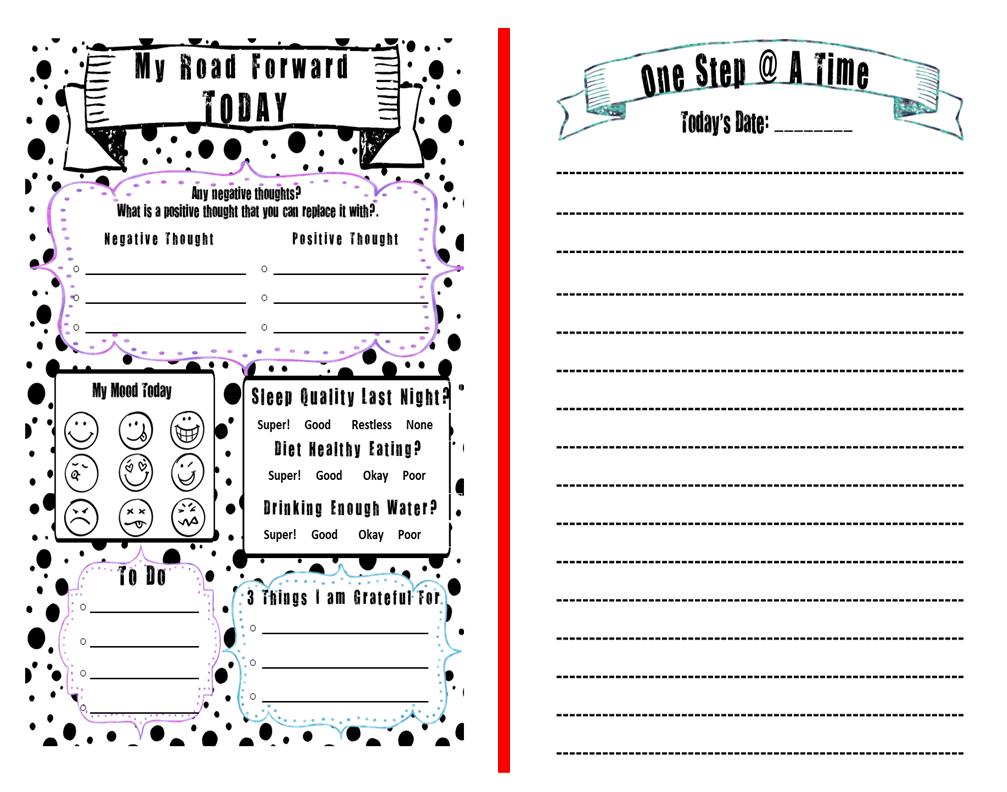
God’s Promises for the Recovery Road
3 in One Journal/Tracker/Coloring Pages
Coloring Pages
Make this Journal Yours! The Front and Back Cover designed for you to color and make it your Recovery Journey
Wellness Tracker & List
Identify Unhealthy Self-Talk and Replace it with Healthy Thoughts
Food, Mood, Sleep, and Water Tracker
To Do List
Grateful List
Journal
Lined Journal/Notebook/Dairy
Wellness
Transform Your Life in 10 Minutes! Self-Care Is the Key!
How to Overcome Addiction as a Christian
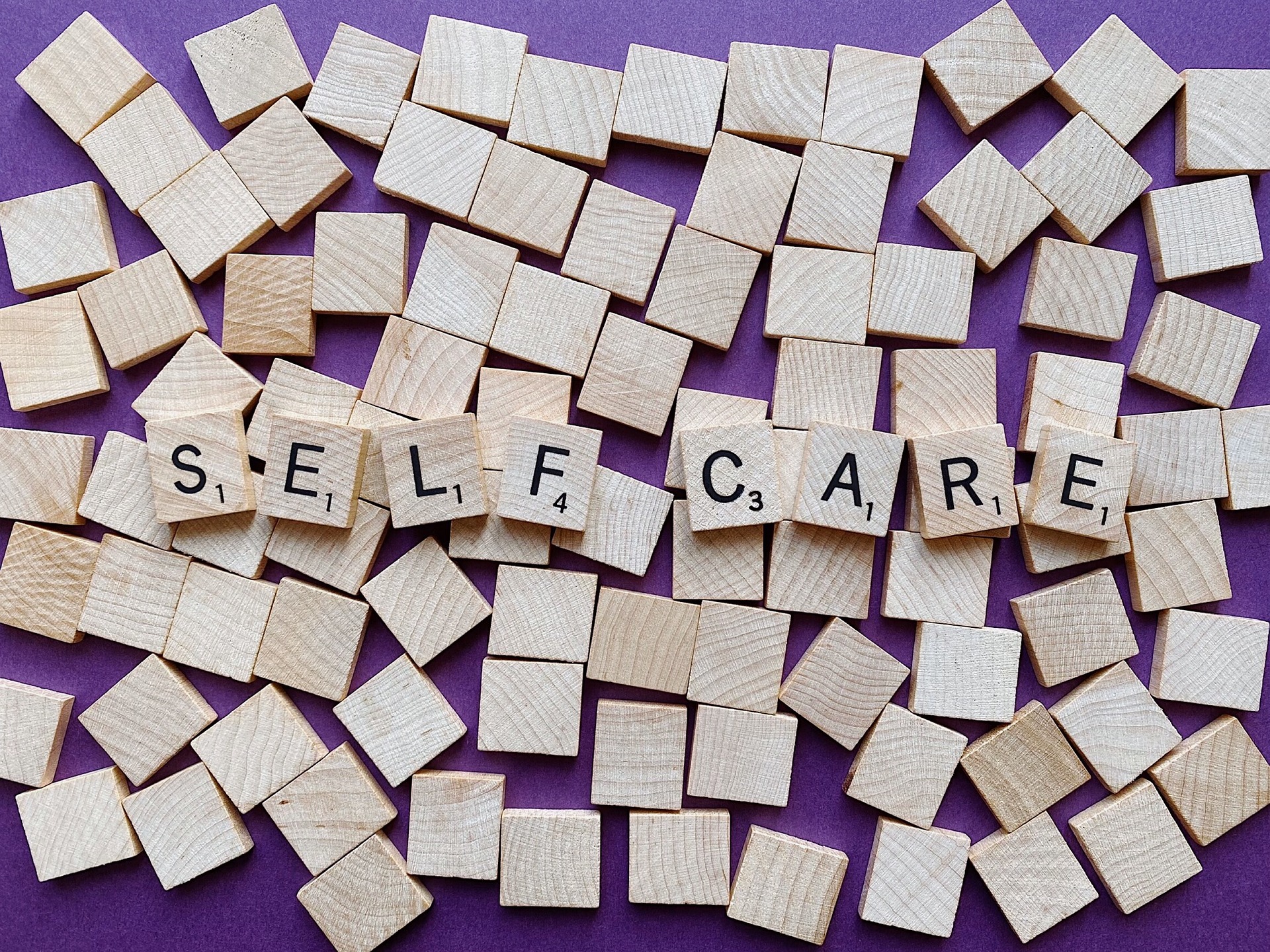
What is self-care, and why is it so important?
Taking care of yourself is important for staying healthy and feeling good. It includes exercising, eating healthy, getting enough sleep, and managing stress. You can also check how you’re feeling mentally and emotionally to make sure you’re doing okay. Doing all these things can help you stay productive, have better relationships with people, and be successful in the long run.
Taking care of yourself is an important part of overcoming addiction. To recover successfully, it’s essential to form healthy routines and habits. Routines and habits should include how many hours you sleep, eating habits of nutritious meals, exercising on a regular basis, incorporating enjoyable activities, making the time to spend with family and friends, attending support meetings, and taking the time to talk to a therapist if needed. Especially in the early days of recovery, you should also be kind to yourself and accept that it’s okay to make mistakes. It’s also important to learn how to deal with stress in a healthy way so you don’t turn back to your old habits. Taking care of yourself will help you stay focused on achieving sobriety and can lead to a better life.
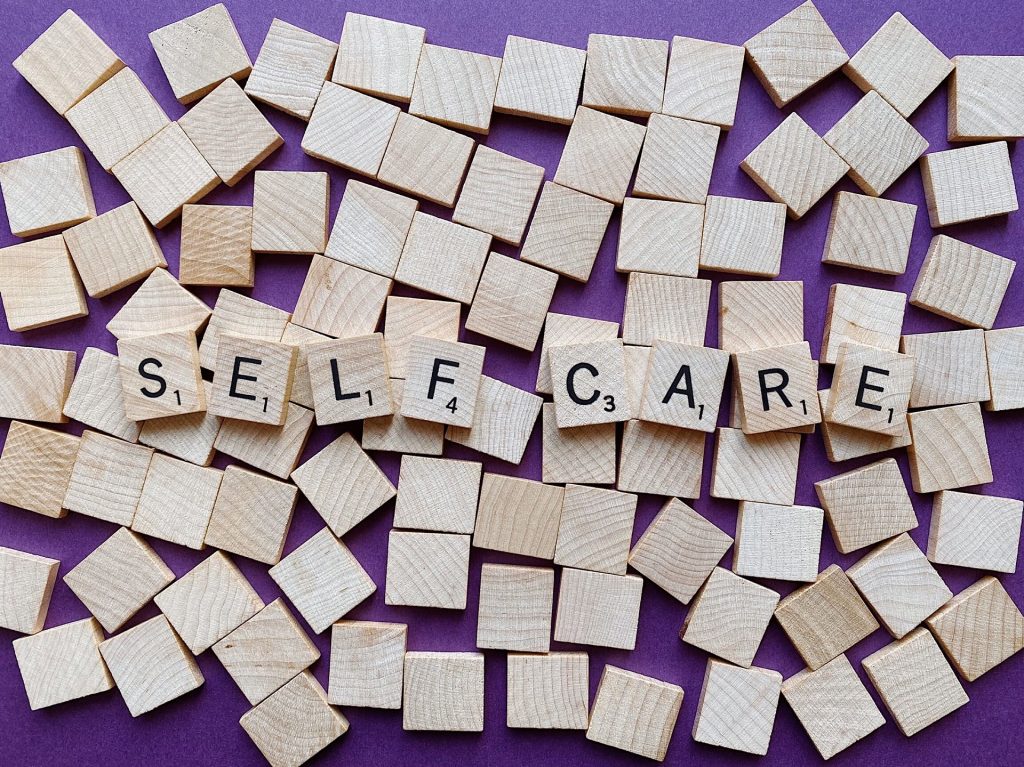
Only 10 Minutes A Day
Something that tends to hold people off from starting down a path of self-care is that they don’t feel as though they have enough time to make that kind of a commitment. They assume that it’ll be hours out of their day that they currently need for other tasks, and they don’t want to cut back that much just to feel a bit better. You don’t need to take a ton of time out of your day in order to get a self-care routine going. Just a mere 10 minutes a day will do. Self-care doesn’t have to take up a lot of time.

As little as 10 minutes a day is enough to help you improve your life significantly. Now, there are a few options you can take in regard to self-care considerations. First, you can spend that 10 minutes a day focusing on one specific thing – primarily either mental health or physical health.
You can alternate days so that you cover both bases and have a full 10 minutes to dedicate to each one. You can spend time each day doing 10 minutes of quick cardio or a quick workout, which can mean the world for someone in terms of improving their physical health. It seems insufficient, but if you really push yourself for those 10 minutes, you can do a lot more than you think. Similarly, those 10 minutes can be spent on improving your mental health.


You can do this by getting in a quick prayer and meditation session or any other equivalent helpful stress relief strategy. It can be done anywhere, and as long as you’re giving yourself around 10 minutes, you’re going to do just fine.
5 Minutes in the Day or 5 Minutes at Night
Another option would be splitting it up each day. You can even do five minutes each, mental health and physical health, if that’s what you’d prefer. If you feel as though it works better for you, then you can do that.
This doesn’t give you as much time, of course, for each part, but you’ll be able to do it more often, which might be what’s best for your situation at that time. There are many experts that say even a small amount of self-care goes a long way.
It’s certainly better than completely neglecting yourself on a routine basis. Find small time-saving strategies like deep breathing, a quick brisk walk, or prayer and meditation. Do this consistently throughout to week to see how your body and mind respond.

One Step At A Time
Long-term health is a life goal for those in addiction recovery and that can be achieved by dedicating just 10 minutes a day to self-care. Whether improving physical or mental well-being, small efforts each and every day will pay off in the long run. You don’t have to put huge amounts of time into your own wellness; it’s enough to take things one step at a time. Self-care is within reach – put in the effort now, and reap the rewards later!

Need A Guide To Help You Start Today?
Check out My Recovery Road’s “Self-Care Weekly Planner“
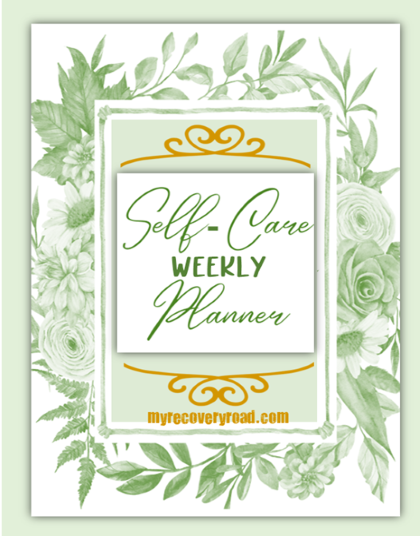
This Planner is a 365-day Undated Calendar which means you can start ANY TIME!Each Month begins with Self-Care Insights to show you how to develop a routine that works for you.
Each Month is also broken down into Weeks.
Each week has: 1. The Planner –To set Goals for Your Mind and Body, write down Daily Affirmations, and track your Water intake. 2. Your Intentions –To write down Intentions for your Physical, Emotional, Spiritual Health https://myrecoveryroad.com/product/self-care-weekly-planner/





